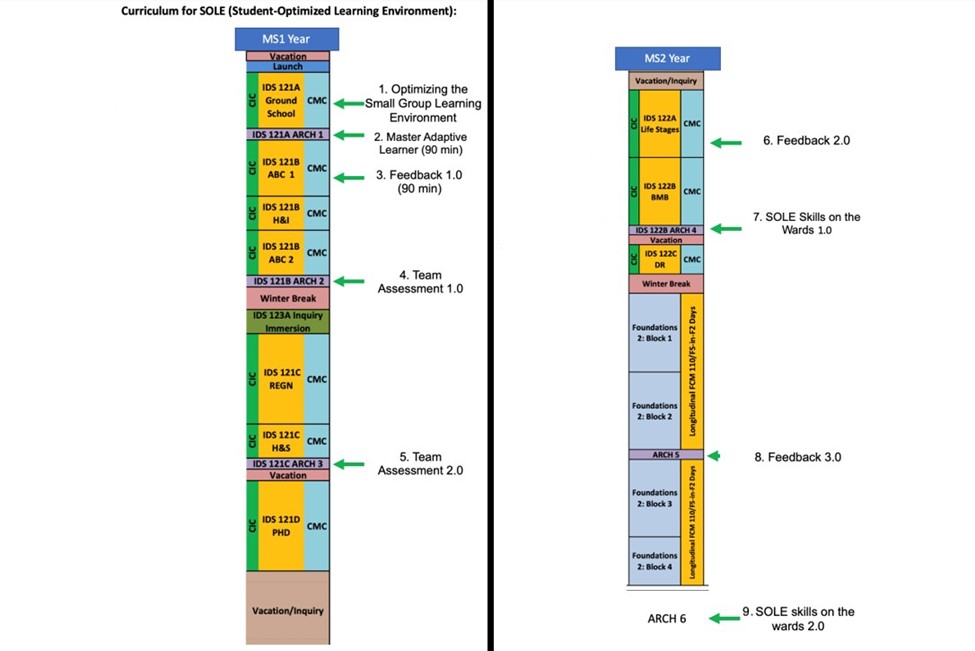Student Optimized Learning Environment (SOLE) Small Group Facilitators
Being a SOLE facilitator has given me the privilege to work and learn alongside our newest students. It is amazing to watch them become empathetic physicians as they learn to navigate through difficult conversations and situations. The course basically teaches itself with the faculty prep sessions.
Matt Lin, MD
UCSF Department of Surgery
We are excited to welcome new facilitators for our first, second, and third-year medical students in the Student Optimized Learning Environment (SOLE) course (formerly Team Learning and Communication Skills (TLCS)).
SOLE Curriculum Background
Small groups provide an opportunity for students to learn about the science and practice of medicine and to intentionally practice the teamwork and communication skills that are core competencies for all health professionals. The SOLE curriculum engages students in a structured discussion of their group’s process and their individual role in this learning process. To improve the group’s function and help students practice important communication skills, the course devotes time to having students identify their learning principles, preferences, and techniques to effectively give and receive feedback. Each session is 50-90 minutes in length. A core group of faculty facilitates the sessions, ideally staying with the same group throughout the year.
The original TLCS curriculum was introduced in the 2006-2007 academic year and has evolved significantly since then thanks in large part to the beloved and deeply missed colleague, Dr. Kevin Mack, in addition to the efforts of the dedicated faculty facilitators. Evaluations and debriefing sessions suggest that this curriculum has helped shift the culture of small groups to one in which students are empowered to be agents in their learning and small group processes.
I love leading the SOLE small group sole sessions more than any other small group I have led at UCSF. The curriculum gets at the heart of how to communicate respectfully with everyone, and it is exciting to see the students develop these skills over time with a clear DEI focus. The prep sessions beforehand provide guidance and tips to make leading the sessions virtually stress-free and the interactive nature of the sessions make it fun for students. I also find the material personally helpful in my own interactions with faculty, staff, and even family!
Cathy Lomen-Hoerth, MD, PhD
UCSF Department of Neurology
- Session topics: Learning principles and learning preferences, Growth Mindset introduction, application of the Master Adaptive Learner framework, effectively giving and receiving feedback from peers and supervisors, team assessment/group cohesion, and applying SOLE Skills to Clinical Team Learning.
- Qualifications for facilitators: Experienced faculty in the school of medicine
- Time commitment: seven 50-90 minute sessions, plus 60 minutes of prep per session, during the F1 year and two 50-90 minute sessions with 60-minute prep sessions during F2
- Benefits to facilitators: Interaction with innovative content and students in the Bridges curriculum. There is no monetary compensation for facilitation.
With questions or to join the team of facilitators, please contact Dr. Era Kryzhanovskaya at [email protected].

